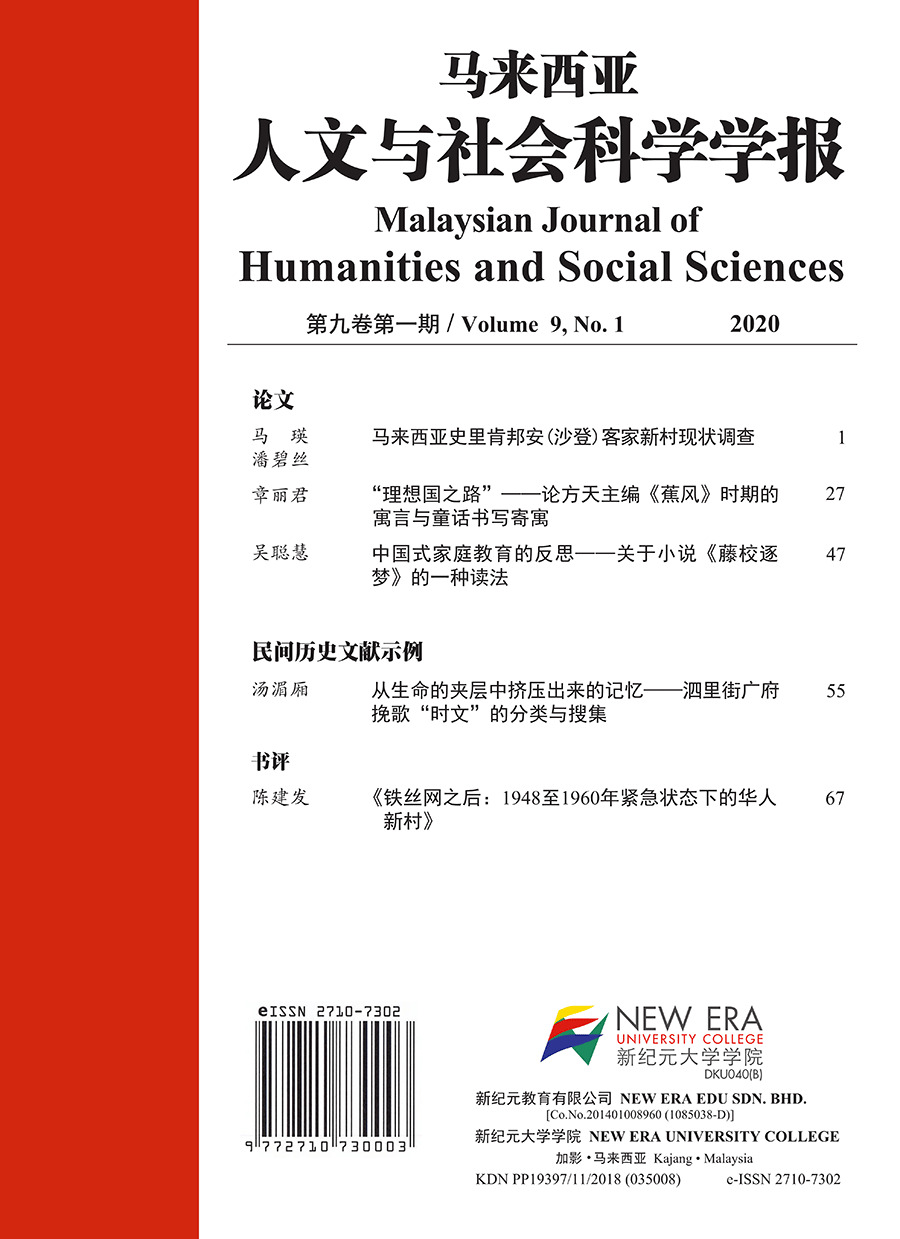“理想国之路” — 论方天主编《蕉风》时期的寓言与童话书写寄寓 "The Road to Ideal Nation”— Discussion on Fairy Tales and Fables published in Jiao Feng whose Chief Editor was Fang Tian
Keywords:
冷战、寓言、童话、理想国, cold war, fables, fairy tales, ideal nationAbstract
二战结束后,紧接着掀开冷战,大陆随即陷入国共内战的泥沼中,催生了第三势力文人。1949年10月,中华人民共和国成立。这时期,非左翼文人圈中出现了追随蒋政府的文人,第三势力文人,以及自由派文人。追随蒋政府的文人退守台湾,而第三势力文人,以及自由派文人涌入香港。他们创办出版社,而友联出版社是其中一家。1953 年1 月,友联出版社与亚洲基金会接上关系,并千1955 年底在新加坡创办《蕉风》杂志,而亚洲基金会背后是美国中央情报局,因此友联出版社被视为带有“美元文化”背景的右派机构。变节中共创党元老张国焘之子——方天也是香港友联南来作者之一。在他任《蕉风》杂志主编期间,千该刊登载了不少的寓言与童话。结合当时星马的社会与政治氛围来探讨这类体裁的作品,大致可见南来友联诸人在当时独立自治运动如火如荼进展,以及华侨在认同纠结的时代氛围中的复杂情感。本文拟以方天在马担任《蕉风》主编时期发表与刊载的寓言与童话为对象,探讨半个多世纪前,因国共大分裂的中国因素促成的马华文学与非左翼南来文人的家国叙事与想象。
After the end of WWII, Cold War began and China fell into the mire of civil war which was fought between Kuomintang and the Chinese Communist Party. This gave birth to the third power literati. In October 1949, People's Republic of China was established. Groups of literati in the non-leftist literati circle during this period were followers of the Chiang Kai-Shek regime, the third force literati and also
the liberal literati. Followers of the Chiang Kai-Shek regime retreated and based themselves in Taiwan. The third force literati and the liberal ones flocked to Hong Kong and established many publishing houses there. Union Publishers was one of them. Union Publishers linked up with Asian Foundation in January 1953 and founded Jiao Feng magazine in Singapore at the end of 1955. Since the Central Intelligence Agency (CIA) was behind Asian Foundation, Union Publishers was thus being tagged as "a rightist organization with the influence of American Dollar". Fang Tian, son of one of the Chinese Communist Party's founding fathers Zhang Guo Tao, was one among the many Hong Kong Union Publishers' writers that had migrated south. When Fang Tian was the Chief Editor for Jiao Feng magazine, he had published many fables and fairy tales in the magazine. By exploring these literary works in the context of sociopolitical situation in Singapore and Malaya at that time, they reveal a mixed sentiment of the Union Publishers' writers concerning the independent movement and overseas Chinese identity. This article, with the study of the fables and fairy tales in Jiao Feng magazine edited by Fang Tian, intends to explore the formation of Malayan Chinese literature and the non-leftist literati's narrative and imagination of their home country, which were caused by the rift between the Kuomintang and the Chinese Communist Party in China more than half a century ago.




